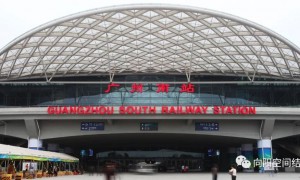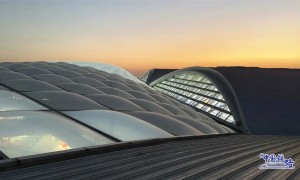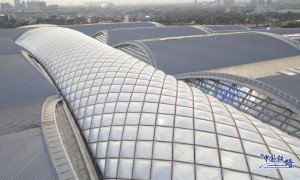用专业的眼光传播价值。
实景拍摄的优点是不用搭景,画面真实 缺点是光线无法控制,意外情况多。如果需要某个特定角度的太阳光,那么一天就只能拍一点时间,如果戏很多,那就只能每天拍一点,总的拍摄天数就上去了,会带来很大的费用,此外还有剧组的车费、住宿费也会比较高。
搭景拍摄不但能提供相对较为舒适的拍摄环境,也能很好地节省拍摄周期,同时保证拍摄质量。而且后期还可以形成一个旅游项目。比如知名的横店影视城,就是一个这种性质的搭景拍摄基地。
横店影视城,是集影视、旅游、度假、休闲、观光为一体的大型综合性旅游区,以其厚重的文化底蕴和独特的历史场景而被评为国家AAAAA级旅游景区。1996年,为配合著名导演谢晋拍摄历史巨片《鸦片战争》而建,并对社会正式开放。
自1996年以来,横店集团累计投入30个亿资金兴建广州街·香港街、明清宫苑、秦王宫、清明上河图、华夏文化园、明清民居博览城、梦幻谷、屏岩洞府、大智禅寺、红军长征博览城、春秋·唐园、圆明新园等13个跨越几千年历史时空、汇聚南北地域特色的影视拍摄基地和两座超大型的现代化摄影棚。
电影《老炮儿》上映有一段时间了,片中的北京老胡同相信大家还记忆犹新吧,大家可能一直以为,这些胡同是在北京某处跟拍什么的,其实都是设计师画好后,搭景搭出来的……为追求真实感,直接把一个胡同街区搭建起来,让人感叹真是CG不如建房啊。
下图为胡同街景的美术设计。
虽然不知道国内搭景一般采用什么结构形式,但是我这里有一组国外某战争电影搭景的全过程,是采用轻钢结构的。一起来学习一下,万一有类似业务,剧务记得和我联系,合作共赢哦~~
Cold-formed steel is widely used in buildings, automobiles, equipment, home and office furniture, utility poles, storage racks, grain bins, highway products, drainage facilities, and bridges. Its popularity can be attributed to ease of mass production and prefabrication, uniform quality, lightweight designs, economy in transportation and handling, and quick and simple erection or installation.
冷弯型钢广泛应用于建筑、汽车、设备、家庭办公家具、电线杆、仓储货架、粮仓、公路产品、排水设施、桥梁等。它的普及可以归因于易于大规模生产和预制,统一的质量,轻量化的设计,运输和装卸的经济,快速和简单的组合或安装。
In building construction, cold-formed steel products can be classified into three categories: members, panels, and prefabricated assemblies. Typical cold-formed steel members such as studs, track, purlins, girts and angles are mainly used for carrying loads while panels and decks constitute useful surfaces such as floors, roofs and walls, in addition to resisting in-plane and out-of-plane surface loads. Prefabricated cold-formed steel assemblies include roof trusses, panelized walls or floors, and other prefabricated structural assemblies. Cold-formed steel possesses a significant market share because of its advantages over other construction materials and the industry-wide support provided by various organizations that promote cold-formed steel research and products, including codes and standards development that is spearheaded by the American Iron and Steel Institute (AISI).
在建筑施工中,冷弯型钢产品可以分为三类:构件、面板和预制组件。典型的冷弯型钢构件,如螺柱、轨道、檩条、梁和角钢主要用于承载荷载,而面板和甲板构成有用的表面,如地板、屋顶和墙壁,除了抵抗平面内和平面外的表面荷载。预制冷弯型钢组件包括屋顶桁架、镶板墙或地板,以及其他预制结构组件。由于冷弯型钢相对于其他建筑材料的优势,以及由促进冷弯型钢研究和产品的各种组织提供的全行业支持,包括由美国钢铁协会(AISI)牵头的规范和标准开发,冷弯型钢占有重要的市场份额。
Cold-formed steel applications can be traced back as early as the 1850s in both the United States and Great Britain. In the late 1920s and early 1930s, cold formed steel entered the building construction arena with products manufactured by a handful of fabricators. Although these products were successful in performance, they faced difficulties with acceptance for two reasons: (1) there was no standard design methodology available, and (2) cold-formed steel was not included in the building codes at that time. Many of the cold-formed steel applications were unable to be used due to the lack of design methodology and product recognition.
在美国和英国,冷弯型钢的应用可以追溯到19世纪50年代。在20世纪20年代末和30年代初,冷弯型钢进入了建筑建筑领域,其产品由少数制造商生产。尽管这些产品在性能上是成功的,但由于两个原因,它们面临着难以接受的困难:(1)没有可用的标准设计方法,(2)当时冷弯型钢没有包括在建筑规范中。由于缺乏设计方法和产品认可,许多冷弯型钢应用程序无法使用。
Cold-formed steel products are shaped at ambient temperatures from steel sheet, strip plate or flat bars by roll-forming machines, press brakes or bending brake operations. They can be produced in large quantity and at high speed with consistent quality. A typical automated rolling machine can run at a speed range of 75-400 feet per minute, and the products can be as small as a three-quarter inch wide cold-rolled channel section to as big as a thirty-six inch wide roof deck section.
冷弯型钢产品是在环境温度下由钢板、带材或扁钢通过滚压成型机、压闸机或弯闸机操作成型的。它们可以大批量、高速度、高质量地生产。一台典型的自动卷板机可以以每分钟75-400英尺的速度运行,产品可以小到3 / 4英寸宽的冷轧槽段,大到36英寸宽的屋顶甲板段。








